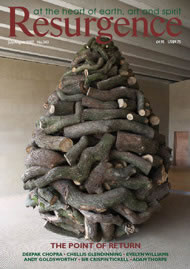THERE IS A popular image of poetry, particularly the reading of poetry, as a pastime for a select few. Poetry is difficult. Poetry offers little of relevance to the everyday experience. Poetry is failing.
Measured simply by book sales, these commonly expressed arguments appear to carry some weight. In a commoditised, sound-bite world, we have developed a tendency to ascribe value based on unit sales. However, if we measure the popularity of poetry through the explosion in participative writing and reading on the internet and through small press imprints, then there are clear and contradictory indicators as to the health and wellbeing of the art-form.
In her latest book, Ruth Padel attempts to explain to students and lay readers alike just how vibrant and alive modern poetry is. The first part of The Poem and the Journey takes the form of a long essay in which the author dissects some common complaints and misperceptions about poetry. Her intent is to show how poetry is and always has been a living medium, focused very much on the highly personal relationship between reader, poem and poet.
Enjoying poetry requires skill, just like enjoying a good thriller or a beautiful watercolour. Knowing what we like is only the first step, and not only does Padel use her essay to explain how many of the arguments set against poetry are without foundation, but she also provides the reader with the tools and techniques necessary to discover the sheer magic and joy of verse.
Whether illustrating the nature of our difficulty with poetry, explaining how cliché and broken rhythm disturb the balance of perception, or leading us through metaphorical minefields towards the glittering prize that is
understanding and homecoming, Padel writes with a light but perceptive touch that encourages the reader to take each forward step.
Nowhere is this encouragement better illustrated than in the second half of the book, where the author takes the reader on a journey through life, using sixty poems from a wide range of mainstream, contemporary writers, with commentaries on each piece. One of the key messages in this book is that we are not living in a dark age of poetic mediocrity. There is no loss of lyricism and meaning in modern forms. Contemporary poetry is as brightly relevant to our everyday experience as it ever was.
During his own lifetime Tennyson continually stressed that he wanted to write “something modern” and his contemporary critics trotted out the same arguments that we hear today. Writers rarely live in the golden age that later generations attribute to the past. Little changes, and Padel is quite clear on the matter. In her Preface she says, “Poetry is still what it has always been, a necessary art, enriching what goes on privately inside us through our lives...Yet it is not much valued publicly today.”
The collection of work assembled in this book stands scrutiny on its own merits, but allied to Padel’s clear commentary it is an absorbing and challenging call to everyone interested in poetry. Padel’s aim is to encourage and enthuse the “many people [who] have lost confidence in approaching poems” and who “sense there is something there they may need but do not know how to go about getting it”.
The comparison between reading a poem and making a journey is hardly a new concept, and Padel offers no excuse for opting for an obvious metaphor. Her aim is to commend poetry unreservedly. Her essay provides a broad, well-argued introduction to many of the conceptual difficulties that face readers, and the tone is perfect for her intended audience. The second half, the collection, is tightly packed, practical and always impressive.
The conversational tone of Padel’s analysis will appeal to both the academic and the non-specialist reader, providing a clear, astute and entertaining explanation as to why we should all make the effort to discover the beauty of good poetry. The Poem and the Journey is a self-sufficient, enthusiastic and deeply encouraging invitation to each and every one of us to remove our stereotypical blinkers, take the plunge and immerse ourselves in a stunningly rewarding relationship with good writing.






